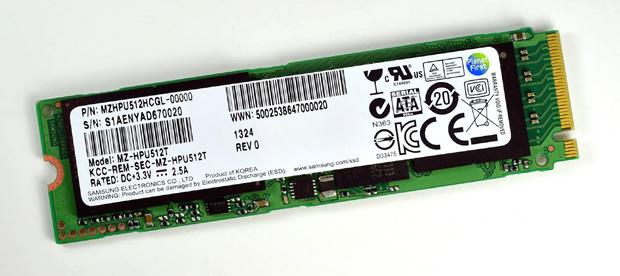
When Apple announced its 2013 MacBook Air at WWDC, we noticed more than just an increase in battery life. The internal specs for the new Ultrabook feature a speedier solid-state drive from Samsung. But that isn’t hinting at some kind of secret Samsung-Apple exclusive partnership. According to CNET, Samsung announced it’s ramping up production of its new, faster PCIe solid-state drives to be distributed to a slew of OEMs and built into the next-gen of ultra-slim notebooks.
The Samsung XP941 PCIe solid-state drive is capable of reading data at 1.4GB per second. The drive is able to read around 500GB of data in just six minutes. That’s the equivalent of 100 high-definition movies at 5GB a piece. CNET estimates that the XP941 will be approximately nine times faster than a conventional hard drive and around 2.5 times faster than the quickest available SATA SDD. As mentioned at Apple’s WWDC keynote, the PCI-based card gives the MacBook Air a 45 percent performance boost over the SATA 3.0-based cards used in previous Airs.
“With the Samsung XP941, we have become the first to provide the highest performance PCIe SSD to global PC makers so that they can launch leading-edge ultra-slim notebook PCs this year,” Young-Hyun Jun, executive vice president for memory sales and marketing at Samsung Electronics, said in a press release.
The XP941’s design is much smaller and lighter than most solid-state drives, allowing it to be slipped into much tighter spaces (like you would find in an ultra-slim notebook). It also means more room for the battery, which could help companies improve battery life on their current Ultrabooks.
Photo via CNET


